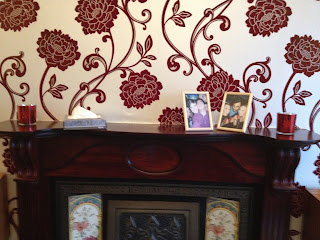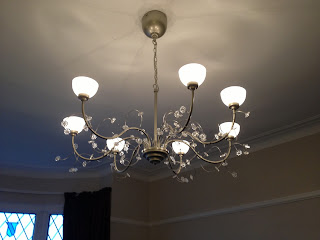Overall,
I am happy with how our film turned out. I think that story works really well
within the short film format; the decision to change the ending of the script
to be positive and hopeful suits the tone of the piece far more that the
original ending. I think that as the piece was really well storyboarded, there
are a lot of good and varied shots that effectively convey some of the
abstract, sensory elements of the film. This
is enhanced by the films sound design, which I think is really effective in
bringing the viewers attention to little details in the film; it makes it
easier for the viewer to connect to the character. However, I think that there
are a number of problems. Firstly, I think there is an overall problem of
emotional involvement. I think that there needs to be something in the first
two minutes that tells us something about the protagonist. We see the homeless
character and our protagonist but there is nothing that connects us too them. I
think this is in part due to the lack of dialogue, so we are only allowed to
judge these characters on their appearance. In addition, I think that the
homeless character really doesn’t work. In part , this is due to the actor but
I feel that he doesn’t come across as he was written in the script. I
originally envisioned him to be older and looking much scruffier. Instead, I
think he looks like a guy how walked out of home two days previous. I also
think that many of the sensory moments within the film, such as close ups of
the protagonist feeling a tennis ball or his hands on the AstroTurf, come and
go very quickly. I think that we could have been bolder with this approach and
not only include more moments like this, but make them linger on the screen for
longer. By keeping them short, I think its takes away from the significance of
the shots and how strong these senses are for the character.
The
final film also has a lot less dialogue than was originally scripted. When it
came to edit, we all found that a lot of scripted content was unnecessary. It
didn’t tell the audience anything else about the characters and I don’t think
it added anything to the plot. I think it was a really good decision to cut it
as I think now the film feels less confused; it now feels much suited to the
overall tone of the piece.
I
really like our two minute film. I think the point of view GoPro shots work
really well in the context of the film. I think that the sound design also
works to engage the audience; the rhythmic heart beat particularly works in
involving the audience. However, I think that generally, there is a problem
with engaging with the central character. There is nothing in the film that
initially allows the audience to care about our character. I also think that it
is not completely obvious what the character is going through. I think it could
be interpreted as a severe headache rather than loss of vision.
I really enjoyed working on this film; I think the
experimental nature of the piece meant that all members of the crew got the
chance to play around with a lot of things relating to their chosen area.
On the other hand, the actual filming process was
quite stressful. A lot of this was to do with a short time period in which to
film everything. For example, the day we were shooting our scenes with the
homeless character in the park, the actor showed up on the day saying they were
only available for three hours. We had over two pages of script to shoot that
day so the whole schedule had to be changed and everything was shot so quickly.
As a result, I think there are some bits that looked rushed and have led to
continuity errors within the final film.
I’ve learnt a lot from working on this project.
Primarily, I would say that in regards to costume, in the future, I would
always double check with the actors what it is they are going to bring to set.
I would ask for photos too, as for this shoot I relied simply on them saying
they had clothes fitting the description I sent. Also, on some occasions, the actor would turn
up in completely the wrong attire, so in the future I think I would be more
prepared for these events and make sure that I had a back up outfit.
This shoot also reinforced the importance of
scheduling. Due to the fact that we were so short of time for a lot of our
planned shooting days, having a good schedule was really important. I also
think that now we are progressing through our course and trying to secure more
experienced actors, it’s really important to appear professional. Having a well
made schedule, and having every crew member fully prepared with help enforce
this.
For this project I was the art director. I began by
thoroughly going over the script and picking out the obvious props that needed
to be supplied. For the costumes for each character, I made a brainstorm, using
the adjectives provided in the script , as well as clues given in the
character’s dialogue. For the special effects in the film, I did a lot of online
research. For the eyeball, I wanted to get a real eyeball however couldn’t
obtain one so spent time testing out a few methods for creating fake eyeballs
online.
As the locations we used were all very specialised,
there was not a lot of set dressing for me to do. In the opticians, I pretty
much kept everything as it was and in the house, I was only able to alter the
furnishings so much. I brought various different additions to help make the house
more personal to our main character. I would of liked to of been able to do a
lot more with the set, but as result, I think this experience has taught me
about the importance of all the small details within the set. Everything that
gets shown on screen gives the audience another detail about that character, so
every detail is important.
Throughout the film, we decided that there should be
a theme of the colour yellow appearing in many of the scenes; yellow to
symbolise hope and optimism. This meant that I got a wide range of yellow items
to fit in subtlety within the scenes. This included a pot of daffodils, yellow
cups and a tennis ball.
I think the group worked well together. At the
beginning of the project, things moved slowly but ultimately things got done
and everyone pulled their wait. I think that everyone worked really hard to get
the films finished on time. I think the main problem I found was, at times,
there was a lack of communication within the group. This was mainly during pre
production where at times it wasn’t too clear when we would be shooting what or
even at some point what we would be shooting at all. This meant that when it
came down to filming the two minute, it all happened very quickly, at not all
of the group could actually make it as it was filmed during the holidays.
Overall, I’m quite pleased with the art direction
within the films. I’m particularly pleased with the two minute piece,
especially the addition of the watch detail. Though I am pleased with some art
direction elements within the 10 minute piece, I think I could have improved on
a lot of what I did. Generally, I think that I should been more proactive in
getting in contact with all the actors personally. I think this would have
meant that I could be aware of what was going to be brought to set (costume wise)
and what I would have to provide. As I was not in personal contact with them
all, I think some of the costume areas are not as good as the should be.
I also think that I should have had more meetings
with the director discussing my ideas and clarifying anything that might be a
miss. When seeing the edit of the film, I realised that there were some parts
of the script that took place on the same day, and therefore involve the same costume,
and this something I hadn’t picked up in the script. The end result is
something that looks sloppy and is filled with continuity errors.
When using the importance of the colour yellow in
the film, we used the idea of colour importance from The Shining. In Kubrick’s film, there are so many instances in
which the colour says so much about the character’s and what is going on the
scene.





























